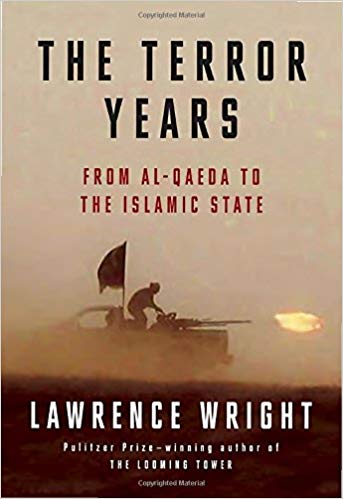The Terror Years Audiobook by Lawrence Wright

text
In The Terror Years: From Al-Qaeda to the Islamic State, Lawrence Wright collaborates diverse individuals, places, and also events to develop a singular picture of this generation’s specifying dispute. Wright explains his publication as “a guide on the evolution of the jihadist motion from its very early years to the present, and also the parallel action of the West to try to include it” (p. xiii). The Terror Years Audiobook by Lawrence Wright Stream. Yet the book is much more than that. Composed of 10 articles formerly published in some form in The New Yorker, The Fear Years supplies an intimate check out the training course of events that finished with the development of ISIS. Wright provides psychological weight to the frequently detached headlines from the time duration, and actual dimensionality to individuals that populate his tales. He additionally catches the moods, the intellectual as well as spiritual issues, as well as the worries of various peoples throughout various countries. As a result, The Terror Years is much less like The Looming Tower (Wright’s Pulitzer Champion book on al-Qaeda, 2007) as well as more like Barbara Tuchman’s The Proud Tower: A Picture of the Globe before the Battle, 1890-1914, highlighting a variety of events, individualities, and also social concerns, but constantly with an eye to the underlying problem.
The very first three phases inform the tale of the early years of al-Qaeda and the US federal government’s expanding (but still delaying) concern with the organization. Al-Qaeda during this time period appears instead quaint in retrospection, when their essential objective was the withdrawal of US soldiers from the Arabian Peninsula. With the hurt history of Egypt given that the 1950s giving the background, “The Man behind container Laden” analyzes the life of Ayman al-Zawahiri as well as his connection with Osama bin Laden. Like much of The Terror Years, the people and also events depicted right here typically elevate even more concerns than responses. Wright, for instance, traces Zawahiri’s path to extremism, yet his preliminary motives continue to be a puzzle. In addition to brief effects regarding suffering misuse at institution and also growing up in the darkness of rich Europeans in Egpyt’s Maadi area, there are few hints as to why this medical doctor chose such a ruthless instructions for his life. What is clear, however, is that Zawahiri was responding at some level to the viewed disorder of Egypt’s society as well as the repressive tendencies of its government, similar to Hassan al-Banna and Sayyid Qutb before him (Zawahiri really created his militant team when he was fifteen years of ages– the exact same year that Qutb was performed). Such grievances create one of the essential styles of The Horror Years (as well as much scholarship on the origins of terrorism): state suppression breeds and also intensifies extremism.
“The Counterterrorist” and also “The Representative” profile the difficulties facing 2 important FBI counterterrorism experts: John O’Neill and Ali Soufan. O’Neill’s management of the FBI’s mangy counterterrorism initiatives throughout the 1990s demonstrates simply exactly how little importance was put on the al-Qaeda threat (according to Richard Clarke, it was a time when they continuously needed to manage the “airheads who didn’t comprehend,” p. 53)). O’Neill as well as Soufan’s examinations of the major strikes versus United States rate of interests, consisting of the 1993 World Profession Center assault as well as the 2000 bombing of the USS Cole, additionally cast a glaring light on the disorder and shortsightedness of the companies that were entrusted with responding to the danger. The Terror Years Audio Book Download. Soufan, for example, was just one of just eight FBI representatives that spoke Arabic at the time of the USS Cole attack. As well as the adversarial partnership between the CIA and also the FBI is front as well as facility below. Wright alleges that 9/11 may not have actually happened if the CIA had actually shared relevant info with the FBI.
Wright then shifts his emphasis to bigger societal issues, initially by examining the function of the media in Saudi Arabia in “Kingdom of Silence.” Wright recounts his experience when he was worked with by a Saudi Arabian paper to train neighborhood journalists. He swiftly comes to be irritated with the country’s repressive establishments, along with the social standards which appear to acquiesce to that repression. In his struggle to bring true investigatory journalism to the paper, he reveals a number of the aspects that likely affected the men who flew airplanes into buildings on 9/11. Saudi Arabia is portrayed as a country where lawful suppression is often unnecessary due to the fact that social practice completes that task. A neighborhood reporter, as an example, informs Wright, “customs claim that eating alone with your female loved ones is disgraceful. Where in our faith does it claim that sitting with your own household is restricted?” (p. 110).